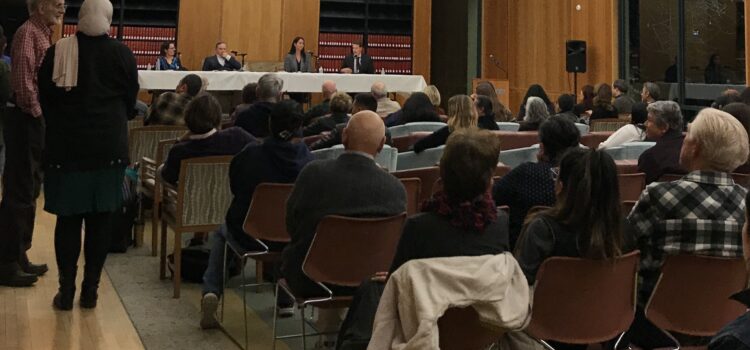
Activists, volunteers, attorney and scholars came together in February at Cal State Bakersfield to talk about “Immigration Behind Bars” and the impacts it has on the community.
Hosted by CSUB’s Kegley Institute of Ethics and CSUB’s Pre-Law Society, “Immigration Behind Bars” is dedicated to informing the community and engaging in respectful discussion on the activist, legal, and education impacts of immigrant and refugee detention, including the experiences of detainees in Kern County.
The event featured panelists, including Jeannie Parent, an English professor for multilingual students and the coordinator of KWESI; United Farm Workers attorney Ambar Tovar who is part of the removal defense project; and Adam Sawyer, the director of the Liberal Studies program at CSUB.
Immigrant communities have seen an increase in separation of families, Sawyer said, and children are left in the care of other in migrant communities.
“You never know when you’re going to see mom and dad again,” Sawyer said. “This type of detainment isn’t new in America.”
Sawyer recalled a time when a child was apprehended by Immigration and Customs Enforcement.
Tovar said these situations leave the child traumatized. The trauma comes from many factors, Tovar said, whether it’s trauma from running away from their homeland or the trauma they face in the detention center.
“Now they come to the U.S., and they are confronted by a wall — a legal barrier and a legal lack of access,” Tovar said.
Providing legal representation to those detained at Mesa Verde Detention Center is also a struggle for attorneys due to lack of resources, Tovar said. Many of those detained at Mesa Verde are held without legal representation, according to Tovar.
“I am one of two nonprofit attorneys that are here in Kern County and are doing this work here in Kern County,” Tovar said. “In Kern County, there are about four or five immigration attorneys — one in which is taking removal defense cases,” said Tovar.
Those detained have the right legal counsel, but that is only if you can afford it, she said, leaving many children without legal representation.
“It’s important to understand not only the legal concept of this but also the human — taking the time to understand this is a local issue and is having serious impacts here in our community,” Tovar said.
Mesa Verde being a private prison is also impacting the community, Parent said. The detention facility is run by GEO Group Inc., which makes more than $2 billion a year, according to Parent.
Parent said because it’s a private company running the facility, there is a chance it is making money from people or immigrant detainees in the facility.
The panelists mentioned there has been an increase in ICE enforcement not just in Kern, but across the nation.